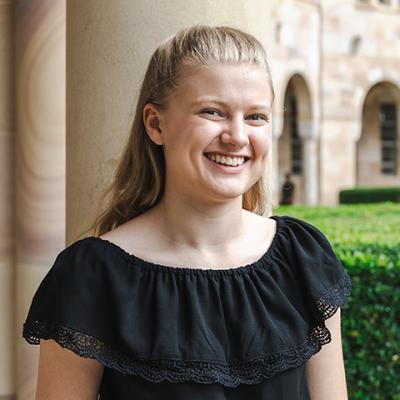Are you considering a career in speech pathology but unsure where to start? You've come to the right place.
Whether you're about to finish high school or you're a working professional looking for a fulfilling career change, we have all the information you need to guide you on your journey to become a speech pathologist.
What does a speech pathologist do?
Speech pathologists are healthcare professionals who assess, diagnose, and treat communication and swallowing disorders. They work with people of all ages, from infants to the elderly, to help them overcome or manage a variety of challenges that affect their ability to communicate or swallow safely. These challenges may include:
- speech disorders like articulation difficulties and stuttering
- language disorders affecting the ability to understand or express language
- social communication disorders impacting how language is used in social contexts
- cognitive-communication disorders related to memory and problem-solving.
They also address voice disorders affecting voice quality, and swallowing disorders (dysphagia) that can impact safe eating and drinking.
Here's everything you need to know about how to become a speech pathologist in Australia.
Step 1: Complete an accredited university degree in speech pathology
The first step to become a speech pathologist is earning a degree in speech pathology.
In Australia, speech pathologists can gain a recognised qualification at either a bachelor's (undergraduate) or master's (postgraduate) level.
Undergraduate study to become a speech pathologist
UQ's Bachelor of Speech Pathology (Honours) is a 4-year, full-time program. This hands-on degree combines theory with practical experience, teaching you how to help people improve their communication and swallowing abilities. You'll learn from experts, practise in world-class facilities, and complete placements in real healthcare settings. If you're passionate about helping others and want an exciting career in health care, this degree will give you the skills to succeed.
Prerequisites for entry
To gain entry into the Bachelor of Speech Pathology (Honours), you’ll need to:
- meet the minimum ATAR score of 94.3 (or equivalent)*
- have completed the Queensland Year 12 (or equivalent) General English subject (Units 3 & 4, C)*
- have completed one of Biology, Chemistry or Physics (Units 3 & 4, C).*
*These prerequisites are indicative and may vary from year to year. Learn more about entry requirements for this program.
Prior to applying for a speech pathology degree, applicants should also ensure they’ll be able to meet the inherent requirements and placement requirements.
If you already hold a bachelor's degree and are looking to change careers, you can pursue a Master of Speech Pathology Studies, an accelerated 2-year program for students who have already completed an undergraduate degree.
Postgraduate study to become a speech pathologist
Use your existing qualifications to become a qualified speech pathologist in only 2 years with UQ’s Master of Speech Pathology Studies, regardless of your previous area of study. Expand your theoretical knowledge and professional attributes while gaining the clinical and research skills necessary for a professional career in speech pathology. From classrooms to communities, you’ll work alongside experienced professionals to make a difference in people’s lives.
Entry requirements
In order to gain entry into the Master of Speech Pathology Studies, you’ll need:
- a bachelor's degree (or equivalent) in any discipline.
Entry is based on GPA, and study in fields such as health, humanities, education, or social, physical or biological sciences is recommended. Learn more about entry requirements for this program.
Step 2: Complete supervised clinical placements
As part of your studies, you'll undertake multiple supervised clinical placements, which are essential for gaining accreditation with Speech Pathology Australia. These full-time placements last 6-8 weeks and take place in hospitals, schools, healthcare organisations, private practices, or even UQ’s own Speech Pathology Clinic. Under the supervision of experienced speech pathologists, you’ll receive hands-on training, guidance, and the opportunity to develop the practical skills and clinical competencies required for a successful career in speech pathology.
Jessica Ruhle, a 4th-year Bachelor of Speech Pathology (Honours) student, shares with us just how valuable she found her placement in building her skillset, confidence, and network.
"Placements are definitely the most rewarding aspect of a speech pathology degree," she says.
"They provide students with a safe environment to make mistakes and learn. During my third year, I completed an 8-week rural placement in Emerald, where I not only gained valuable clinical skills such as assessment and intervention but also boosted my confidence and ability to work independently in a new environment, as a healthcare professional."
"Placements also teach you how to work alongside other health professionals (such as OTs or PTs) and provide an opportunity to start building professional networks in your field. This experience has empowered me to embrace every opportunity that comes my way, knowing I can thrive in any situation."
Step 3: Register with Speech Pathology Australia
Once you’ve completed your qualification, the next step to becoming a Certified Practising Speech Pathologist (CPSP) is to register with Speech Pathology Australia. This registration proves you possess the essential skills and training needed to provide effective treatment to clients. To be eligible, you're required to complete a minimum of 20 CPD points annually through ongoing professional development. This training ensures you are always up to date on any changes in the field, so you can continue to work with a diverse portfolio of clients.
Graduates can apply for a Provisional Certification in the transitional period before full certification. Just make sure to apply within 3 years of graduating.
Explore your career opportunities in speech pathology
Speech pathology graduates have a variety of career path opportunities to explore, including roles as clinicians, researchers, and educators. They also work in diverse settings such as health, education, and disability.
Specialist areas to consider include:
- private practice
- hospital/health
- paediatric
- education
- disability
- rehabilitation
- community
- mental health.
A Bachelor of Speech Pathology (Honours) or Master of Speech Pathology Studies will provide you with both opportunities and flexibility, giving you the ability to align your career prospects with your interests and goals. Each of these paths will lead to a rewarding and dynamic career, helping people from all walks of life lead healthier and fulfilling lives.
“Working as a speech pathologist is a huge privilege, as we are able to fulfil a unique role in the lives of children, adults, and their families," says Jessica.
"Whether you're helping a child say their first words, or assisting a stroke survivor to eat again, every day is so different and hugely rewarding.”
Ready to start your journey towards becoming a speech pathologist?
Explore UQ's Bachelor of Speech Pathology (Honours) Explore UQ's Master of Speech Pathology Studies






